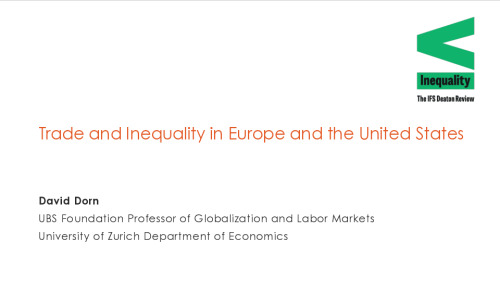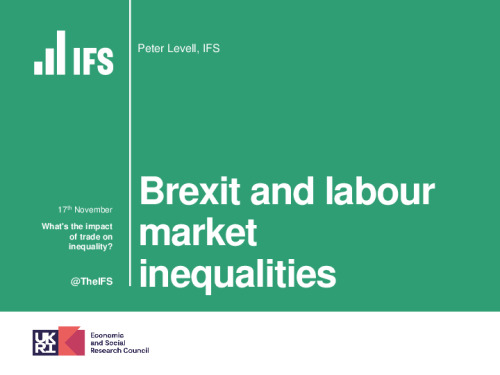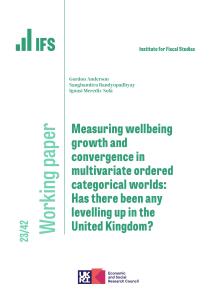The growth of international trade, and of trade between lower-income countries and high-income countries in particular, has had profound effects on the labour markets and even the politics of high-income countries.
This online event focused on what economists have learned about how trade affects inequality in rich countries over the past two decades: Why did some countries like Germany apparently adjust better to recent waves of globalization than other countries like the US and the UK? How did trade with low income countries affect the prices of goods bought by rich and poor consumers? What impact did import competition have on public attitudes towards trade and political outcomes in rich countries? How might changes in trade patterns and barriers following Brexit affect inequality among workers in the UK? And what does previous evidence suggest the main challenges of Brexit might be for the UK labour market?
Chaired by IFS Director Paul Johnson, it featured a series of short talks from leading experts on international trade that was followed by a questions and answers session. The presentations drew on a chapter on “Trade and Inequality in Europe and the United States” written as part of the wide-ranging IFS Deaton Review into inequalities funded by the Nuffield Foundation.












